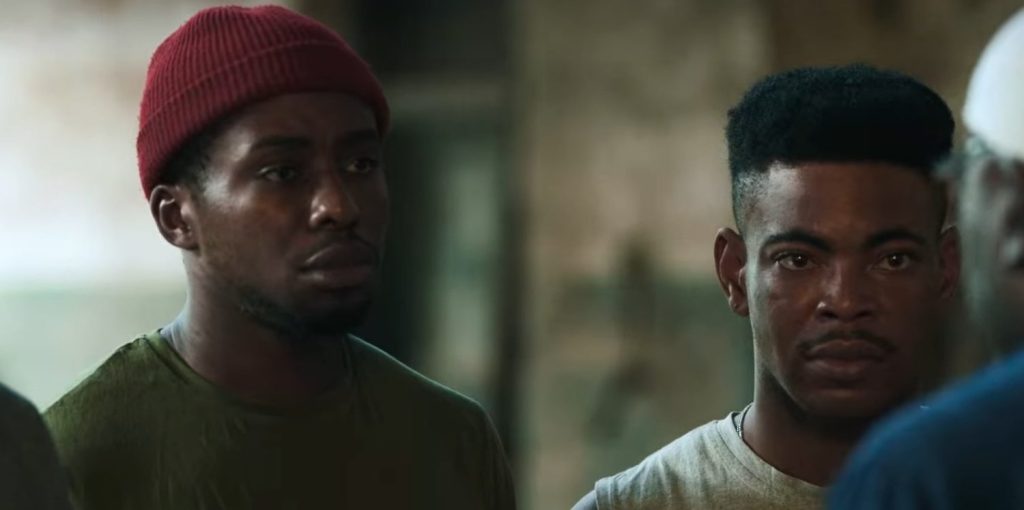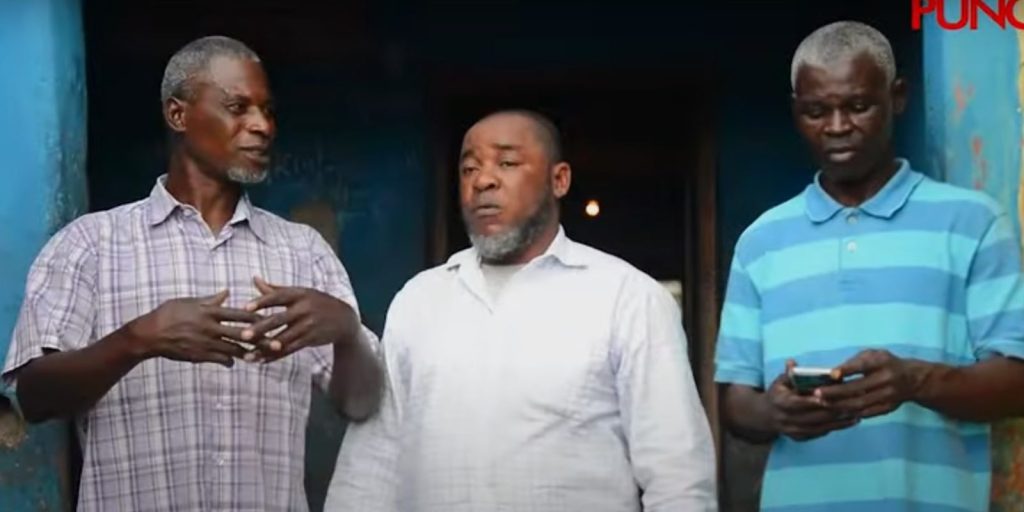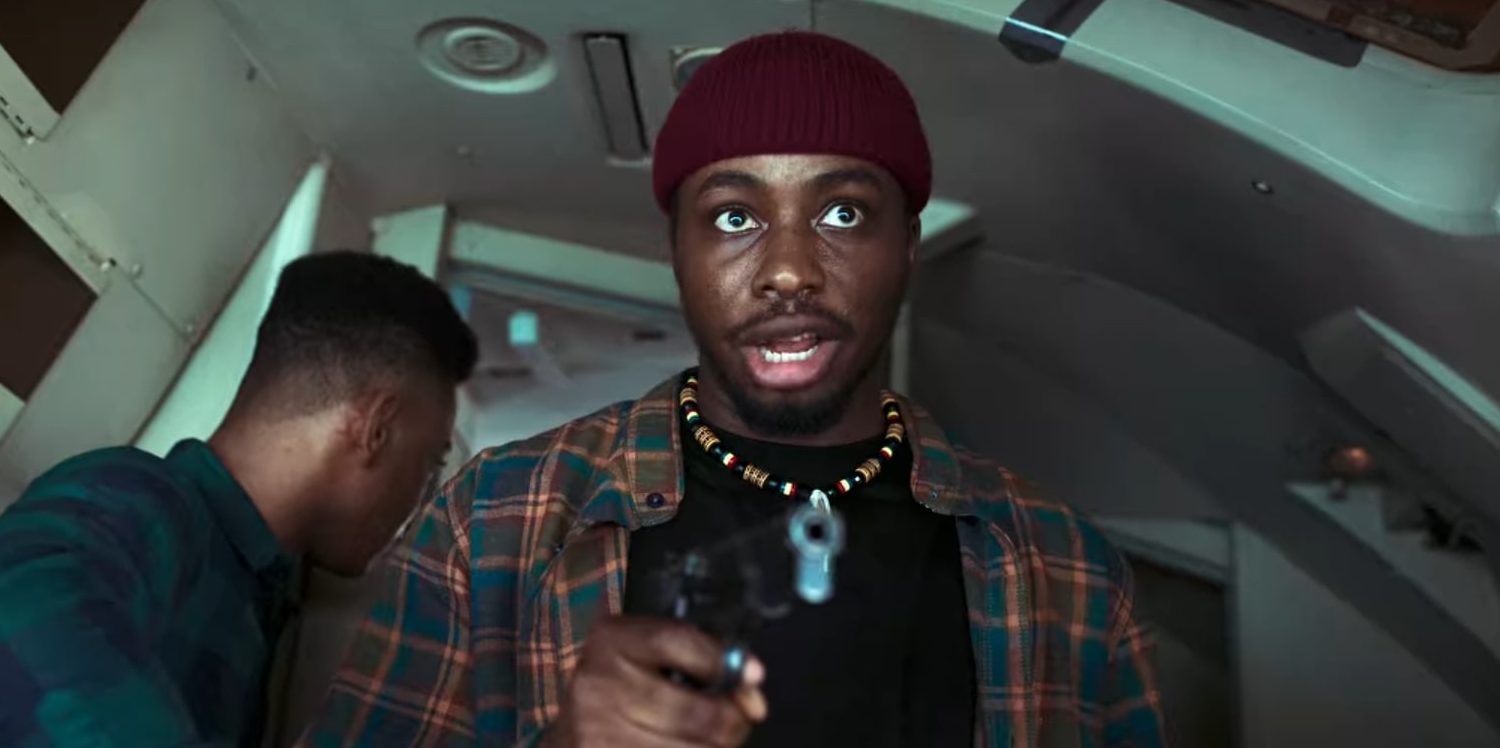‘Hijack ’93‘ is a harrowing depiction of the 1993 hijacking of a Nigerian Airways flight that was abducted by four teenagers who were driven by a need for social reformation in their country. The movie follows the chilling encounter through all its phases, offering a more intricate drama about the inside situation, particularly through the eyes of the hijackers. By highlighting their experiences, the story brings them closer to reality, offering a more holistic view into their lives and the forces that set them on the path of extremism. However, despite the bridges that are built on an emotional basis, the authenticity of the central figures is directly related to the actual conspirators of the hijacking and its blemish on Nigerian aviation history.
The Real-Life Figures Behind Owiwi, Skipper, Eruku, and Iku
The four hijackers in ‘Hijack ’93,’ namely Owiwi, Skipper, Eruku, and Iku, are fictional versions of Richard Ogunderu, Kenny Rasaq-Lawal, Benneth Oluwadaisi, and Kabiru Adenuga, respectively. They were the four teenagers responsible for the hijacking of Nigerian Airways Airbus A310, which was allegedly motivated by a desire to install a democratic-based leadership in Nigeria, which was at the time run by an interim government. On October 25, 1993, the four boarded the Lagos to Abuja flight and took over proceedings once the plane was mid-air, establishing control over the cockpit and forcing the pilot to land the plane in neighboring Niamey, Niger Republic. Although the hierarchy within the group was incidental, Ogunderu carried out the bulk of leadership during the captivity.

In the movie, the hijackers are given various nicknames explicitly created by scriptwriter Musa Jeffery David. It allows the narrative some leeway in exploring its own themes while symbolizing each hijacker using a specific moniker that alludes to their innermost desires and motivations. The film also provides a few flashbacks into each individual’s backstory, fleshing out their narrative and providing a deeper understanding of why they are pursuing such an extreme act. It does a commendable task in retelling how the hijacking played out, including its resolution at the end. On October 28, 1993, the four hijackers were captured when the gendarmes rushed into the plane and subdued them, albeit costing the life of a crew member in the process.
Richard Ogunderu Served His Sentence and Keeps Himself Busy Today Through a Variety of Schemes
As one of the leading voices during the hijacking, Richard Ogunderu has continued his prominence in current times through numerous interviews recounting his experiences as an abductor on the Nigerian Airways flight in 1993. In the aftermath of the incident, he and his fellow hijackers were sentenced to nine and half years in an arid prison in Niamey, Niger Republic. They were not extradited to Nigeria; instead, they had to acclimate to prison life in a foreign land. They completed their stint in 2002. Ogunderu characterized it as neither a good nor bad experience, deeming it as “livable” instead. Though he expressed sadness at the death of a crew member during the gendarmes subduing the hijackers, Ogunderu insisted that he does not regret hijacking the plane as “desperate times” called for “desperate measures.”
One of the unintended consequences of being imprisoned in the Niger Republic prison was Ogunderu’s newfound ability to speak French. He remained engaged with Nigerian life and returned to his home country after his release. However, it was different than before, as a new regime was in place, and the work and legacy of the four hijackers had become slightly diminished. In a 2023 interview, he revealed that he is currently involved in running the African Youth Organization, which mobilizes the local youth. He was also enthusiastic about the launch of his company, Provalue Enterprises, which is meant to advance electricity production in Nigeria through battery technology.
Away from his work life, Ogunderu mentioned in an interview that he has a fiancé named Maria Marello, who he met at Alliance Francaise after returning to Nigeria. His childhood aspiration was to become a marine engineer, but it remained unfulfilled due to a lack of higher education courses on the subject in the country. The former hijacker did consider moving abroad to follow his dreams but ultimately sought not to. Around that time, he fell in with the Movement for the Advancement of Democracy organization, which was the cause that fueled him and his fellow hijackers to take over the Nigerian Airways flight in a demonstration of their zeal for the democratic principle. Previously, he also expressed an interest in the Nigerian presidency, but it remains an unattained goal as of today.
Kenny Rasaq-Lawal, Benneth Oluwadaisi, and Kabiru Adenuga Remain Stalwart Believers in Democracy

Like Richard Ogunderu, the three others who took part in the hijacking of Nigerian Airways Airbus A310 served out a nine-year and four months sentence in Niamey, Niger Republic. While Ogunderu was more diplomatic about the prison experience, the others were less complimentary. “We were poorly fed. We could neither speak Hausa nor French and nobody spoke English to us,’ Kenny Rasaq-Lawal said about the stint. While prison was no bed of roses, the world outside proved even thornier once they were released in 2002. They returned to Nigeria, hoping to reconnect with their people, but found a cold reception instead. Their prospects for a job and future looked bleak despite some of them having picked up a few skills here and there.
Kabiru Adenuga became a skilled artist during his prison time but was forced to return to the Niger Republic when the Nigeria he returned to felt like a distant version of itself. A similar experience happened to Kenny Rasaq-Lawal, who had to move to the neighboring country to capitalize on his French-speaking skills and hopefully earn a living through a valuable job. As of 2021, Lawal and Kabiru are still making a living in the Niger Republic, while Ogunderu remains dedicated to his own ventures in Nigeria. Despite shirking the limelight, Lawal, Kabiru, and Benneth gave a joint interview in 2023 to The Punch, where they once again revisited their desire to maintain democratic rule in Nigeria. Today, they are hailed by many as modern-day heroes for fighting for a righteous cause.
Read More: Hijack ’93: Is Lee Zhang Based on a Real Chinese Ambassador’s Son? How Did He Die?


You must be logged in to post a comment.